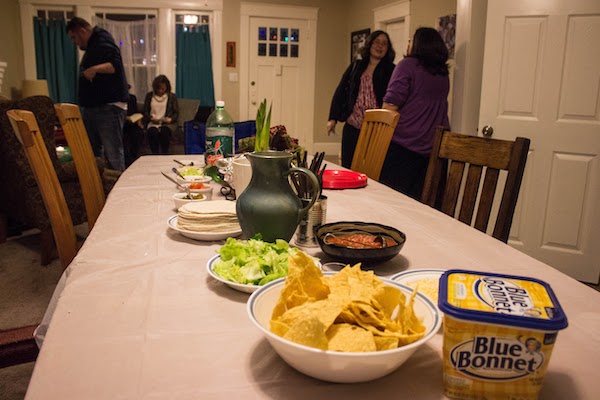A Cheerful Giver
By Patrick Neitzey
“Who does God love?”
“A cheerful giver!”
The congregation’s vigorous response echoes around me as I sit terrified and transfixed. I watch people walk to the front to drop money into the offering plate held by my friend Angel. This was three years ago during my first time at Worship at Haywood Street Congregation. Haywood Street Congregation a missional congregation in Asheville, a church that is made up of all types of people: folks experiencing homelessness, retired lawyers, doctors, drug dealers, children, elderly folks—all people really.
I am terrified watching the offering being collected, “doesn’t this rob people of their dignity?” I think, “what if they have no money to give, it almost feels like they are being compelled, coerced, convinced to give.” After worship I vocalized these thoughts to my wife, Hannah (now a staff member at Haywood Street Community). She responded to me by saying, “The Church needs to stop looking at membership as a financial sacrifice and look at membership as a personal sacrifice of self for the sake of the community.” I looked at her and said, “what an innovative thought,” and she responded, “Patrick, that is not innovative, that is what Jesus was communicating to us by hanging out with the folks that had little to give.”
As we wrestle with the question: How do we include those with diverse incomes with authentic mutuality? I think the place to start is membership. If membership is only defined by people who pay dues or who are determined to be units of monetary giving, then we are not forming a community but, instead, an exclusive club. When the call and response “Who does God Love? A cheerful giver” is spoken at Haywood St., there is no mention of monetary giving. It is a call for a diverse community of people to give out of the abundance God has given them. Whether it be through story, song, service, or money, the call is to give with a cheerful heart.
I am reminded of Wendell Berry’s fictional character Burley Coulter (Hannah Coulter, 2005) and his understanding of membership:
Oh, yes, brothers and sisters, we are members of one another. The difference, beloved, isn’t in who is and who’s not, but in who knows it and who don’t. Oh, my friends, there ain’t no non-members, living nor dead nor yet to come. Do you know it? Or do you don’t? A man is a member of a woman and a worm. A woman is a member of a man and a mole. Oh, beloved, it’s all one piece of work.
If we set the expectation that being in community has monetary constraints or we value some gifts more than others, then we begin to create communities where Christ is excluded. But, if we see membership into community on the basis of total inclusion, radical love, and cheerful giving of all our prayers, all our presence, all our gifts, all our service, and all our witness, then we experience true community as a means of grace.

